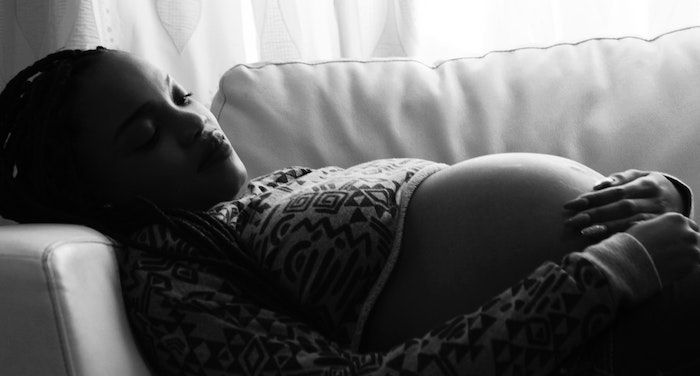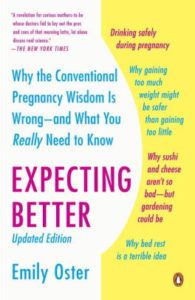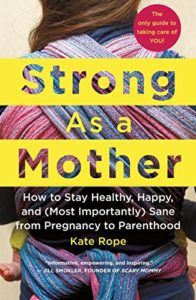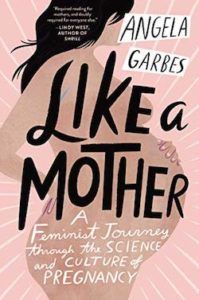
Greater Expectations: 4 Pregnancy Books Worth Reading
Mention that you are pregnant, would like to be pregnant, or even that you just had a dream the other night about babies, and someone is likely to recommend a how-to manual like What To Expect When You’re Expecting to prepare you for parenthood. If you’re one of the many turned off by the judgmental tone of that advice, here are four pregnancy books worth reading.
First written in 1984 and now in its fifth edition, What To Expect is often cited as the unofficial bible for pregnancy or, as I came to know it, as the comprehensive guide to everything that could go wrong with your developing fetus and why it will be your fault. The book is full of advice like, “You’ve got 9 months of meals, snacks, nibbles, and noshes ahead of you. Each one of them is an opportunity to feed your baby well before he or she is even born—a chance to make a down payment on a healthier future for your little one.” True, but most women will also eat at least a thousand times while pregnant. Making each nibble about the health of your baby is a heavy expectation. Despite some useful information, What To Expect’s sanctimonious, mother-as-virtuous-incubator tone made me feel both guilty about the things I supposedly could control and terrified of the things I could not.
Fortunately, recent years have brought much better, less judgmental pregnancy guides. Here are my recommendations for books that impart useful information with humor and balance. Instead of stoking fear, these books help pregnant people feel confident in their choices and less alone in their struggles.
 Expecting Better: Why the Conventional Pregnancy Wisdom Is Wrong—and What You Really Need to Know by Emily Oster
Expecting Better: Why the Conventional Pregnancy Wisdom Is Wrong—and What You Really Need to Know by Emily Oster
Emily Oster, an economist, breaks down the research around common pregnancy issues like morning sickness and epidurals. Noting that all choices carry risk, Expecting Better summarizes the science behind common pregnancy dilemmas, like what to eat, prenatal testing, and birth plans. Instead of blanket prohibitions like “No sushi!” she offers scientific studies to show how much you really need to worry about coffee, deli meats, exercise, and more.
Thanks to Oster, I ate runny eggs without fear through pregnancy. (I did give up medium-rare steak and tuna.) Her takeaways in this book are refreshingly judgement-free for expectant parents overwhelmed by the “shoulds” and “nevers” of pregnancy.
Nurture: A Modern Guide to Pregnancy, Birth, Early Motherhood and Trusting Yourself and Your Body by Erica Chidi Cohen
by Erica Chidi Cohen
Ready to explore the mind-body connection in pregnancy, birth, and postpartum? Nurture is a guide to the physical and psychological transformation of pregnancy. It’s also one of the few recent pregnancy guides written by a woman of color. As a doula and lactation consultant, Cohen balances physiological facts with ideas for nourishing body and mind. There are month-by-month tips on self-care, including mindfulness and movement exercises, and space to journal.
Nurture is also refreshingly nonjudgmental about birth options. Cohen offers a comprehensive “menu” of labor comfort measures, ranging from medicated (epidurals and spinal blocks) to unmedicated (breath, movement, massage). Devoted to both mind and body, Nurture offers the balance I craved during pregnancy.
Strong as a Mother: How to Stay Healthy, Happy, and (Most Importantly) Sane from Pregnancy to Parenthood by Kate Rope
 Many pregnancy books focus on physical factors for mothers and their growing, fruit-sized fetuses. The swell of emotions of pregnancy and postpartum are often overlooked. While pregnancy can be joyous, it can also be uncertain, anxious, depressing, and downright unsettling. After all, identity can shift and realign as much as a pregnant uterus. Fortunately, Strong as a Mother offers a guide for how to ride the emotional waves of each trimester and postpartum. Key Tip: Google is not your friend for pregnancy symptoms.
Many pregnancy books focus on physical factors for mothers and their growing, fruit-sized fetuses. The swell of emotions of pregnancy and postpartum are often overlooked. While pregnancy can be joyous, it can also be uncertain, anxious, depressing, and downright unsettling. After all, identity can shift and realign as much as a pregnant uterus. Fortunately, Strong as a Mother offers a guide for how to ride the emotional waves of each trimester and postpartum. Key Tip: Google is not your friend for pregnancy symptoms.
Beyond tips and tricks, Rope interviews women about their own hopes and fears, and details what support worked best for them. Reading these unique perspectives helped normalize what I was feeling. This pregnancy book reassured me that emotional ambivalence is a natural part of becoming a mother.
Like a Mother: A Feminist Journey Through the Science and Culture of Pregnancy by Angela Garbes
 Part memoir, part reporting, Like a Mother takes on the good and gory of birth. As a Filipina woman, Garbes notes how hard it is to see herself in the overwhelmingly white-authored pregnancy literature, and writes her own. While seeking experts’ perspectives on pregnancy, she reveals intimate parts of her own journey. Garbes describes experiencing pregnancy loss, loving breastfeeding, and recovering postpartum with wry and often poetic observations.
Part memoir, part reporting, Like a Mother takes on the good and gory of birth. As a Filipina woman, Garbes notes how hard it is to see herself in the overwhelmingly white-authored pregnancy literature, and writes her own. While seeking experts’ perspectives on pregnancy, she reveals intimate parts of her own journey. Garbes describes experiencing pregnancy loss, loving breastfeeding, and recovering postpartum with wry and often poetic observations.
My favorite chapter delves into the placenta, or as Garbes calls it, “An Organ as Two-Faced as Time.” I found it impossible not to become obsessed with “the entirely new organ that I was growing, alongside another human being, inside my uterus.” Like a Mother is like a heartfelt conversation with a well-informed mom-friend.










